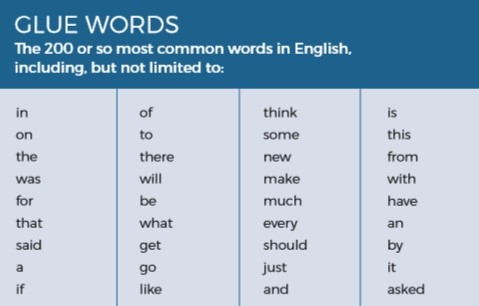
Librarians are amazing. They have vast stores of knowledge—or at least know where to find information. They also curate a phenomenal collection of words in print, electronic, and digital formats. Their livelihood and reputation rest on the words of others.
It behooves librarians to be fussy and a bit of a worry-wart. The words and works under their care are priceless to others. Imagine how devastating it would be if something happened to the world’s librarians. Who would care for the words? And consider this: one person you can turn to for help, whom you can always count on, is a librarian.
I think we can all agree that librarians are important to our society. Now let me show you how an editing tool is like having a skilled and knowledgeable librarian helping you with every word you write.
Imagine a kindly, bespectacled woman with fresh, minty breath hovering over your shoulder as you pour words out on the screen. Her critical task is to help you make every word choice the best and to guide you to clearer, more concise sentences. She has your literary best interests at heart.
Here’s what this wonderful librarian might say to you as she reads your prose.
- "Excuse me. You used an adverb there. Maybe there’s a stronger verb that will do?"
- "Hate to bother you again, but I’m afraid this sentence has 60% glue words."
- "Pardon me, so sorry, but it looks like you capitalized Yoga in the first paragraph, but not here."
- "Terribly sorry, but I can’t help notice you have started four sentences with a pronoun."
- "Oh dear, it looks like you’ve written this sentence in passive voice."
- Final thoughts
"Excuse me. You used an adverb there. Maybe there’s a stronger verb that will do?"
Your librarian (aka editing tool) wants you to know using an adverb isn’t necessarily bad, but it’s sometimes used to modify a weak verb. You’re better off replacing weak verbs and adverbs with a stronger verb. Let’s look at an example.
- Joanna ran quickly to the corner, but the car was nowhere in sight.
In the above sentence, your main character is "running quickly" which doesn’t give us much of a visual image. What if you rewrote it with a stronger verb, such as:
- Joanna bolted to the corner, but the car was nowhere in sight.
We have an excellent article on the truth about adverbs you should read.
"Hate to bother you again, but I’m afraid this sentence has 60% glue words."
What is a glue word, you ask? Over 200 of the most common words in the English language are glue words that don't add much to your sentence. Consider these common words:

When your sentence has too many glue words, it’s sticky, meaning readers have to wade through the goo before they get to your meaning. An example might make this clearer.
- She wanted to know if the weather would be like yesterday when she needed an umbrella to go to the market.
The above sentence has 21 words, 66.7% of which are glue words. You want to keep your glue words below 40%. See if this rewritten sentence is better:
- She wondered if rain was forecast, like yesterday’s umbrella weather.
Down to ten words now, the sentence is concise with only 27.3% glue words.
"Pardon me, so sorry, but it looks like you capitalized Yoga in the first paragraph, but not here."
Your librarian/editing tool points out when you’re not consistently using capitalization, spelling, hyphenation, and more. These pesky inconsistencies can be hard for writers to catch, making an editing tool invaluable. Let the algorithm find any inconsistencies so that your readers won’t become confused as they read.
While you might not notice them in your work, readers will pick up on an inconsistency almost immediately. And anything that takes your reader’s attention away from your meaning and intention is damaging.
"Terribly sorry, but I can’t help notice you have started four sentences with a pronoun."
Again, repetitious sentence beginnings won’t be something you’ll catch as you write. But they are tedious to read, and you don’t want to bore your readers. It’s best to let the editing tool find these technical gaffes to help you tighten up your work.
Another common sentence start is using an "-ing" word too often. Here’s an example:
- Baking fresh bread fills your house with delightful scents. Creating your own signature bread is a fun way to experiment with different ingredients. Learning how to bake most breads is easier than you’d think.
Wow. Do those sentences sound dull? There’s no rhythm, which you’ll get when you mix up your sentence constructions.
"Oh dear, it looks like you’ve written this sentence in passive voice."
Librarians/editing tools are great at pointing out passive voice constructions. If you’re not familiar, a passive voice sentence has the subject of the sentence following the verb. It makes you read to the end to figure out who is performing the action in the sentence. Let’s look at an example:
- The newly published murder mystery was borrowed on Saturday from the library by Anna.
Good grief! You don’t find out it’s Anna who’s borrowed the book until the end. Don’t make your readers wade through to find who’s doing what. Rewrite the sentence in an active voice.
Your sentences should always have the subject and the verb together at the beginning so readers don’t have to work too hard. Besides, active sentences are more engaging and compelling to read.
Final thoughts
There are dozens more instances where an editing tool can make a significant difference in your writing.
ProWritingAid has over 26 different reports that offer ways to improve your work and make it clearer and easier to read. When your readers aren’t focusing on the technical and stylistic errors in your manuscript, they can better enjoy your narrative arc and appreciate your plot twists.
Don’t take readers’ attention away from how great your story is. Use an editing tool to run your work through. And when you do, imagine a friendly, knowledgeable librarian’s voice offering you pertinent and valuable suggestions to make it the best it can be.

